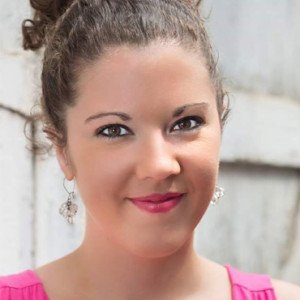Celebrate Alice Gerstenberg’s wonderland of work
100 years ago, Alice Gerstenberg’s work was cutting edge and pushing boundaries. All here in Chicago. She was a major force in the Little Theatre Movement, and had a feminist perspective that was daring during her time.
Her work is still relevant and thought provoking, and from May 18 - 21, you can see three of her plays at Berger Park Cultural Center. Chicago performer, writer and theatre creator, Eileen Tull, produced the festival celebrating Gerstenberg’s work. Along side Melody DeRogatis and Corinne Hastings, Tull is also directing one of the plays. Below, Tull talks about why it was important to showcase Gerstenberg’s plays now, site specific work and continuing Gerstenberg’s fight through art.
Q. What drew you to Alice’s work and why was it important to celebrate it now?
A. I had read Overtones at some point in college, and it always stuck with me. When I was considering doing a project with royalty free material, I came across it again. Overtones in particular seems so contemporary, and I was curious about what else the playwright had written. Finding out that Alice was a Chicago playwright and was a big part of the Little Theatre Movement really intrigued me. As a scrappy, self-producing Chicago theatre maker myself, I felt a very obvious kinship to her. I was also frankly disappointed to find so little of her work retained. Why isn't she a more celebrated playwright, locally or nationally? It's not an impossible question: she was a woman writing women's stories. The fight for gender parity is constant and while we certainly have made strides, we are nowhere near equal representation in the American Theater. And as we move forward, I think it's always important to celebrate those who came before us.
Q. You are one of three directors for the three plays in the festival, how did the cohort come about and how did you all decide which work you wanted to direct?
A. This is actually the first time the three of us are working together! We came together to discuss the possibility of the project and we all just really clicked. Both Melody DeRogatis and Corinne Hastings are so thoughtful and tenacious, but what was most important to me was the ensemble-driven nature of their past work. On a project like this with lots of moving parts and limited budget, it's imperative to focus on actors and create a playful environment. And while we have a fabulous production assistant (Mary Aurora Moore), each director is responsible for the design and management of their own play. I couldn't be happier with this team.
Q. Do you think that audiences during the time when Overtones was first produced walked away with the same message as today’s audiences? And/or how has the theatrical experience of this play or any of the others in the play festival changed?
A. I think audiences at the time were taken aback by the frank and direct ideas in the play. Women not only have thoughts and ideas, but they have complicated inner lives! Now, I think so much of the success of this play is tied to its historical context and the surprise that it was written so long ago. But one could change the costuming and add hints of technology to denote time period and set it anywhere. It's a play that, for better or for worse, has roots in many, many decades.
Q. What has surprised you about the process in directing this piece?
A. I've directed plays that require a lot of dramaturgical context, but this one has almost none. A mention of "The telephone girl" downstairs is one of the only things that place it in a certain time period. So there wasn't a lot of historical research involved. This is also my first time working with the actors in my cast, so there was a lot of joy in getting to know each other. The two pairs have to be so intrinsically connected and it's been so fun watching the cast work. They're such a talented group that brought so much creativity to this piece.
Q. The plays are being brought to life in Berger Cultural Center, an old mansion turned park district building, what can audiences expect for the performances in more of a found space instead of a traditional theatre auditorium?
A. I love site specific work! As much as I appreciate and enjoy some good traditional proscenium theater setups, I love the intimacy and immersion of site specific work. It really allows the audience to escape into the world of the play and be a fly on the wall for these intimate conversations. Berger Park Cultural Center is a former residence, a beautiful turn-of-the-century mansion that used to populate this neighborhood. Almost all of those buildings have been razed, but this one was fought for by the community and preserved. It's such a gem of a building and perfectly lends itself to the environments of these plays.
